
Somos is a leading telecommunications company that manages the registry for all telephone numbers in the North American numbering plan, offering voice, messaging, and routing solutions. Since 2013, Somos has been a trailblazer in the telecom industry, consistently finding new ways of empowering businesses to maintain strong relationships with their customers.
Over the last few years, Somos has been in a moment of growth. They’ve conducted a large-scale technological shift, migrating millions of wireless and toll-free phone numbers to the cloud. They’ve also been working to diversify their revenue streams by bringing innovative products and services to their client base. Throughout this transformation, they’ve increased their employee numbers.
Somos understood they needed to implement greater structure to accommodate their growth, with an eye to developing their culture around employee performance. In April 2019, they hired Deborah Thomas in the role of Chief People Officer to make modifications around accountability and managerial responsibility. Thomas began by carrying out a listening campaign, meeting with everyone at Somos to better understand their individual needs.
“We are in the early stages of transitioning to an ‘Agile’ organization” Thomas explained, noting that Agile is a term used within the software and technology space. The objective is to deliver the maximum “customer value” in the shortest sustainable lead time. “Some key features of Agile organizations are distributed decision-making, distributed leadership, and leaders guiding as opposed to telling.”
As Thomas began to look for leadership curriculum that fit the goals of Somos and its employees, she thought of Interaction Associates (IA). Years earlier she had completed IA’s Facilitative Leadership program, an experience which led to her own certification as an in-house trainer of the content.
“I attended IA’s Facilitative Leadership training 25 plus years ago and I remember it being an inspiring, I mean life-changing, event,” Thomas recalled.
“I wanted that for the team. I wanted leadership training to not just be a ‘training’; I wanted it to be a transformative experience because we are trying to transform our organization."
“As I was looking at the Facilitative Leadership principles and the principles of Agile organizations, they matched,” she reiterated. “Even though the content itself has been around for quite a while, it reflected exactly where we wanted to go. It was a natural recommendation for me to suggest that we adopt Facilitative Leadership at Somos.”
"I attended IA’s Facilitative Leadership training 25 plus years ago and I remember it being an inspiring, I mean life-changing, event,” Thomas recalled. “I wanted that for the team. I wanted leadership training to not just be a ‘training’; I wanted it to be a transformative experience because we are trying to transform our organization."
- Deborah Thomas, Chief People Officer, Somos

In October 2019, IA began delivering the Facilitative Leadership program to 24 leaders at Somos, including the CEO and direct reports. Participants invested two days for the in-person training, which covered the Seven Practices of Facilitative Leadership™. The primary objectives of the training were to:
1. Increase Meaningful Inclusion
Generate participation from diverse perspectives and lead discussions that stimulate honest dialogue with practical outcomes.
2. Accelerate Sound Decision Making & Execution
Improve strategic thinking in groups and reduce the time it takes to make and implement informed decisions through a consistent application of skills.
3. Improve Results, Processes, & Relationships
Demonstrate collaborative behaviors, which has been proven to generate positive outcomes across three dimensions of success – Results, Process,
and Relationships.
Following the initial program launch, Thomas interviewed each participant to understand the impact and determine next steps. The feedback from surveys and live conversations was overwhelmingly positive, with a strong desire from participants to receive reinforced learning through engagement and follow-on training.
In January 2020, the Somos executive leadership team introduced a new performance management process which encouraged a more practical approach to goal setting, meetings, commitments, coaching others, delivering and receiving feedback, and creating pathways to action. When Thomas went into conversation with IA to design the follow-on training, it was important to Somos that the learning be aligned with the Agile principles they were in the process of rolling out across the organization.
Somos and IA developed a plan which included one 90-minute training session each month to augment the skills employees had learned. Every follow-on session would focus on one of the Seven Practices of Facilitative Leadership, refreshing the original content while providing additional tools and applied practices to strengthen the learning. Everyone agreed that Thomas, who had been re-certified as a trainer during the course of the initial delivery, was uniquely positioned within the company to teach the follow-on sessions.

Unfortunately, when COVID-19 hit in early 2020, plans changed. Somos quickly shifted to a 100% remote organization, and in-person training was no longer possible. Despite the new reality, Somos remained committed to keeping up with the Facilitative Leadership curriculum; Senior IA Consultant Michael Reidy signed on to help re-design the program in an online format.
Each of the online sessions were comprised of a special topic and related leadership practice. The sessions utilized virtual breakout rooms for intimate practice, after which participants rejoined the main room to debrief. As a group they evaluated the session and aligned around the next training topic. In addition to the deep dives into the seven practices, Reidy and Thomas added an “Adaptation to Change” session to address the distinct challenges of the moment.
Reidy and Thomas were thrilled that the virtual follow-on learnings for Facilitative Leadership were both feasible and effective.
“It’s an amazing thing that is made possible by training in Zoom,” commented Reidy. “No ambient noise, no people looking around to see who is watching, just the participants communicating with each other clearly in the gallery view. And the depth of learning is still present.”
Somos frequently conducts employee surveys to understand what their managers are doing well and where there’s opportunity for improvement. The responses they receive continue to highlight the success of the training.
“Twice a year, we survey our employees on their experiences with performance management. Each survey, and certainly at the end of the year after Facilitative Leadership was implemented, we saw a significant improvement in the co-ownership (leaders and employees) of performance discussions as reflected in the quality of feedback and performance management discussions,” Thomas said. “And that’s what we were hoping to accomplish, that there would actually be a dialogue – not a monologue – a dialogue.”
Thomas has been left with a renewed sense of conviction in the quality of Facilitative Leadership training and how transformative the experience still is for people.
“There are not many training courses I’ve gone through that continue to be relevant 25 years later. I think the success of Facilitative Leadership is due to the core principles upon which I believe it was built, which was to say that everyone has value in the organization, hearing their voices matter, and when all of those voices are heard, there will be improved productivity and engagement. All of that shows up in results.”

Inspire people and teams to do their best, and then some.
Facilitative Leaders empower people to work together to achieve a common goal. They make it easier for people to:
The Power of Collaborative Action
Today’s challenges and opportunities call for an expanded model of leadership. Beyond coping with change, leaders must design and manage change by tapping the power of participation. Facilitative Leadership® is our flagship leadership development program; it explores the relationship between leadership and participation and offers a proven method for turning obstacles into opportunities. Through seven leadership practices, we provide a framework for improving the effectiveness of team, project, and organizational leaders.
Fill out the form and we'll be in touch within one business day.